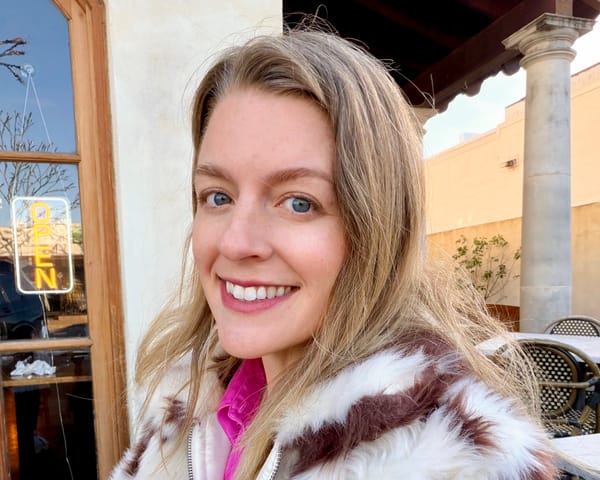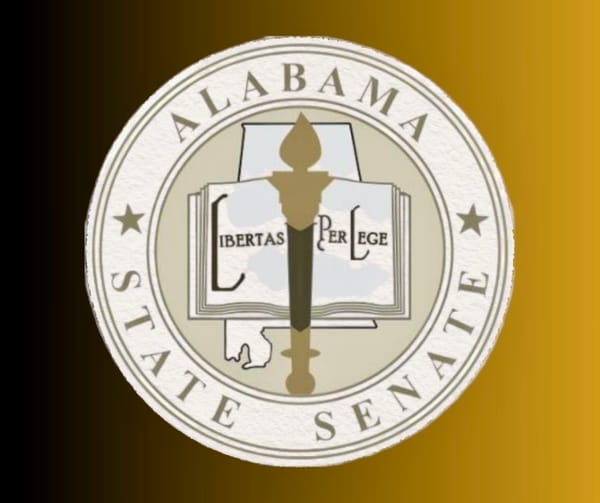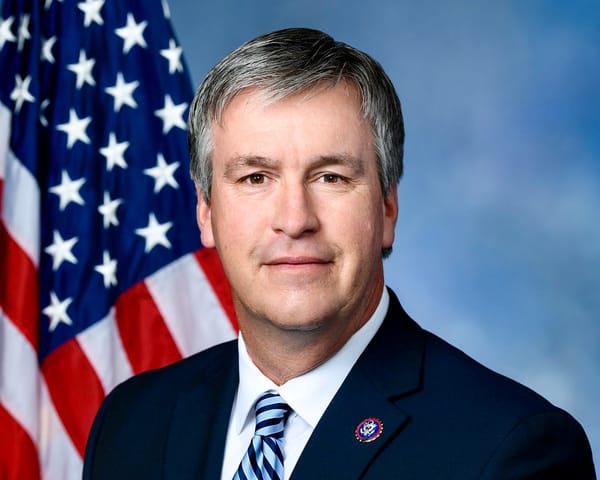The Mechanics of Manufactured Scarcity
“We don’t need more bureaucracy to fix what bureaucracy broke”—Alicia Boothe Haggermaker

Guest Opinion by Alicia Boothe Haggermaker
The irony is that our “broke” government isn’t broke at all. Every day, tax revenue pours in, but a nineteenth-century rule called the Anti-Deficiency Act makes it illegal for agencies to spend a cent without fresh approval from Congress (U.S. GAO Principles of Federal Appropriations Law, 2024). Even if the Treasury is full, even if programs are funded on paper, the money can’t move until a vote authorizes it (CRS Report RL34680, 2024).
The law was created to prevent corruption and overspending. Today it does the opposite: it paralyzes essential services, halts paychecks, and weaponizes bureaucracy against the very people it’s supposed to protect. It’s not that we lack money; it’s that we’ve built a structure that values procedure over purpose.
Every shutdown proves it. Workers are told to report without pay because their duties are “essential,” but apparently not essential enough to fund. Food assistance programs are suspended. Communities are left waiting while politicians argue about who’s to blame. It’s a portrait of a nation that can collect but not connect—one that can stockpile funds yet deny their use.
A Design That Ignores Real Life
Early in our marriage, when my husband and I had custody of his three children, he lost a subcontracting job through no fault of his own. We had never needed public help before, but with three kids to feed we applied for food stamps. Because we were self-employed, the state looked at the previous year’s tax return and said we made too much (USDA SNAP Policy Memo 2023). That may have been true the year before—but not when we applied.
We weren’t looking for a handout; we were trying to bridge a gap. A system built on last year’s numbers couldn’t see the reality of that moment. Fast-forward to today: we’re not wealthy, but we still pour our time and what resources we can back into the community. That’s what real community looks like—people investing in one another instead of waiting for a distant bureaucracy to give them permission to care.
Restoring Trust Through Decentralization
Many people claim the system is abused, and they’re not entirely wrong. But centralized welfare and charity programs make both fraud and neglect easier. When decisions are made far from the people they affect, the rules punish honesty and reward manipulation.
A community-centered model would solve both problems. Local review boards or cooperative funds could evaluate real-time circumstances, distinguish between temporary hardship and chronic exploitation, and move resources quickly to where they belong. Transparency and shared oversight mean help reaches those who truly need it—and only when they need it.
Behavioral research supports this. Yale psychologist Tom Tyler found that people obey laws more willingly when institutions are transparent and fair, not coercive (Why People Obey the Law, 2006). Nobel laureate Elinor Ostrom showed that decentralized, locally accountable networks produce more cooperation and less corruption than distant bureaucracies (Governing the Commons, 1990). The lesson is simple: trust breeds integrity. When citizens participate in shaping and overseeing the help that’s offered, abuse declines and dignity rises.
When Punishment Replaces Support
Our country spends billions policing the symptoms of the problems it refuses to solve. Instead of investing in prevention, education, and opportunity, we invest in incarceration. Alabama’s prison crisis proves it: one of the highest incarceration rates in the nation (Bureau of Justice Statistics, 2023), overcrowded facilities, and privatized probation systems that turn poverty into profit (Alabama Appleseed Center, 2022). We don’t have structures that truly support people—and then we punish them for failing to thrive inside systems built to break them.
Psychology has been warning us for a century. Sigmund Freud wrote that when freedom and expression are repressed, those forces “come forth later in uglier ways” (Civilization and Its Discontents, 1930). Modern behavioral theory agrees: when basic needs for security and belonging are blocked by bureaucracy, survival instincts replace moral reasoning (Maslow 1943; Merton 1938). Crime emerges not from immorality but from blocked access to legitimate means of success.
If we want lower crime, we don’t need harsher laws; we need functional, decentralized systems that keep people stable, supported, and seen before they reach a breaking point. Rehabilitation, education, and local opportunity cost far less—and create far more integrity—than a prison bed.
The Alabama Solution
Anyone who’s seen The Alabama Solution understands what happens when punishment becomes a business model (Southern Center for Investigative Reporting, 2024). Our state turned incarceration into industry—where overcrowded prisons and privatized probation line pockets while families and communities collapse. It’s the logical endpoint of a system that treats people as numbers instead of neighbors. We’ve built a network that profits from the very pain it causes and then calls it reform (Equal Justice Initiative, 2024).
The real solution isn’t another layer of oversight from the top—it’s rebuilding accountability from the ground up. When local communities manage resources transparently and cooperatively, there’s no room for that exploitation to take root. Sovereignty isn’t rebellion; it’s responsibility. It’s how fairness becomes function.
Transparency Protects Both Sides
Community oversight also exposes exploitation that centralized systems miss. Not long ago, a woman outside a grocery store claimed she needed money for her baby’s medicine. I offered to buy it for her directly; she found a dozen reasons why that wouldn’t work. Later I shared the story online, and a friend recognized her—the same woman had approached her and her mother later that week. That single act of open-source awareness stopped others from being taken advantage of (Pew Research Center, 2022).
That’s community intelligence in action: neighbors sharing information to protect one another. It’s how generosity and accountability coexist when trust and transparency are built in.
The Path Forward
We don’t need more bureaucracy to fix what bureaucracy broke. We need localized sovereignty—the freedom and responsibility to care for one another directly, through transparent systems that reflect real conditions instead of outdated paperwork.
When communities are empowered to manage their own resources, accountability becomes natural and fairness becomes possible. Because the problem has never truly been a lack of money or morality.
It’s been the lack of freedom—and trust—to use both wisely.
Alicia Boothe Haggermaker is a lifelong resident of Huntsville, Alabama, and a dedicated advocate for health freedom. For more than a decade, she has worked to educate the public and policymakers on issues of medical choice and public transparency. In January 2020, she organized a delegation of physicians and health freedom advocates to Montgomery, contributing to the initial draft of legislation that became SB267.
Opinions do not reflect the views and opinions of ALPolitics.com. ALPolitics.com makes no claims nor assumes any responsibility for the information and opinions expressed above.
Sources:
The Mechanics of Manufactured Scarcity
1. U.S. Government Accountability Office. Principles of Federal Appropriations Law (GAO Red Book). Discusses the Anti-Deficiency Act and its implications for agency funding.
→ https://www.gao.gov/legal/appropriations-law
2. Congressional Research Service (CRS), “Shutdown of the Federal Government: Causes, Processes, and Effects.” Updated April 2024.
→ https://crsreports.congress.gov/product/pdf/RL/RL34680
A Design That Ignores Real Life
3. Alabama Department of Human Resources – SNAP Policy Manual. Confirms use of prior-year tax returns for self-employed applicants.
4. U.S. Department of Agriculture, “Supplemental Nutrition Assistance Program (SNAP): Self-Employment Income and Eligibility Procedures.” (FNS Policy Memo, 2023).
→ https://www.fns.usda.gov/snap
Restoring Trust Through Decentralization
5. Tyler, Tom R. Why People Obey the Law. Princeton University Press, 2006.6. Ostrom, Elinor. Governing the Commons: The Evolution of Institutions for Collective Action. Cambridge University Press, 1990.7. Deci, Edward L., and Richard M. Ryan. “Self-Determination Theory.” American Psychologist, 55(1): 68–78, 2000.
When Punishment Replaces Support
8. Freud, Sigmund. Civilization and Its Discontents. W.W. Norton, 1961 (original 1930).9. Merton, Robert K. “Social Structure and Anomie.” American Sociological Review, 3(5): 672–682, 1938.10. U.S. Department of Justice, Bureau of Justice Statistics. “Prisoners in 2023.” Confirms Alabama incarceration rates and national comparisons.
11. Alabama Appleseed Center for Law and Justice. In Trouble and in Debt: The Criminalization of Poverty in Alabama. 2022.
→ https://alabamaappleseed.org
The Alabama Solution
12. The Alabama Solution documentary, 2024. Produced by the Southern Center for Investigative Reporting.
→ https://southerncenterforinvestigativereporting.org/the-alabama-solution
13. Equal Justice Initiative. “Alabama’s Prison Crisis.” Updated 2024.
→ https://eji.org/news/alabama-prison-crisis/
Transparency Protects Both Sides / OSINT
14. Denning, Steve. “Open-Source Intelligence and the Future of Community Trust.” Forbes, May 2023.
15. Pew Research Center. “The Role of Online Networks in Local Community Building.” 2022.
The Path Forward
16. Small Business Administration. “Community-Based Economic Development: Case Studies.” 2023.• SBA “Rural businesses” guide: https://www.sba.gov/business-guide/grow-your-business/rural-businesseshttps://www.sba.gov/business-guide/grow-your-business/rural-businesses• SBA Congressional testimony: “Catalyzing Economic Growth through SBA Community-Based Lending” (March 29 2022): https://democrats-smallbusiness.house.gov/uploadedfiles/03-29-22_mr._flores_testimony.pdf
17. World Bank Policy Research Paper: “Decentralization, Accountability, and Governance.” 2020.• World Bank, Decentralization – Brief (June 6 2013): https://www.worldbank.org/en/topic/communitydrivendevelopment/brief/Decentralization• World Bank, Decentralization and Service Delivery (WPS3603): https://documents1.worldbank.org/curated/en/606871468139500265/pdf/wps3603.pdf




